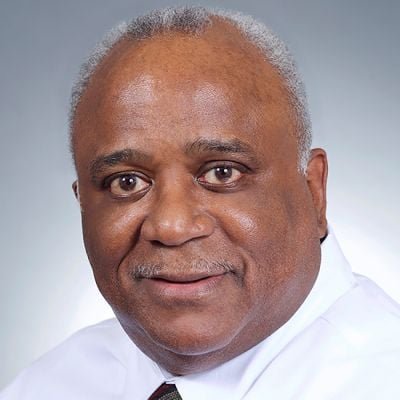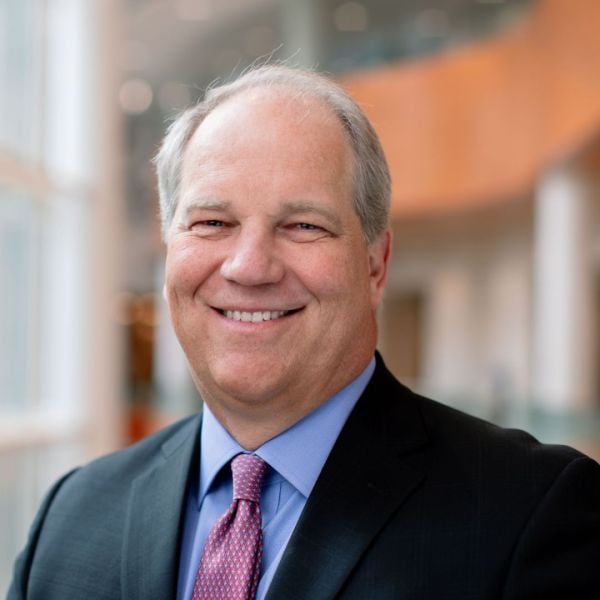
The cost of American health care is often presented on a macro level: as a percentage of GDP or total spending on the order of many billions of dollars for hospital services, pharmaceuticals, or anything in between. But affordability for chronically ill people and their families trapped in the middle of our policy debates around resource allocation often comes down to a matter of thousands or even hundreds of dollars.
Routinely, we force people to ask, “Will I have enough money in my wallet to cover the $115 copay attached to my medication?”
Health insurance copays have become a distorted, self-defeating, and punitive tax levied against the sick by the payors we entrust with our premium dollars and our care when we fall ill.
It’s time we eliminate high out-of-pocket costs for the sake of chronically sick patients and their families.
America’s insurance system assumes that people who pay premiums might be incentivized to overuse the health services purchased by their insurance plan. To correct for this “moral hazard,” we are required to share in the cost of health care via deductibles, copays, and/or coinsurance. These out-of-pocket costs are the levers of affordability that deserve scrutiny from our policymakers. Because even small increases in cost-sharing are associated with increased suffering and death. And eliminating cost-sharing can actually substantially reduce medical spending.
I live with cystic fibrosis (CF), a rare genetic condition that was historically known as a childhood illness because most people born with it died before adulthood. Today, a suite of precision medicines addresses the underlying cause of CF. One medicine, Trikafta®, has proven to be remarkably effective in altering the course of CF for thousands of Americans and many more across the globe.
Trikafta took me from the precipice of end-stage disease to enjoying a full, healthy lifestyle. It allowed me to attend graduate school, pursue a fulfilling career, and start a family.
But Trikafta is expensive. And in order to gain access to it, people with CF need to confirm their eligibility with a genetic test and periodic liver monitoring. Insurers then require prior authorization, which effectively amounts to them agreeing with a doctor that Trikafta is appropriate and necessary.
Finally, before holding the drug in our hands, people with CF face a copay.
For commercially insured patients, drug manufacturers can provide copay assistance in the form of coupons or rebates that reduce a patient’s out-of-pocket cost. That assistance improves adherence, reduces the financial toxicity from chronic illness, and is the path, in the case of Trikafta, to an affordable drug that remarkably reduces broader health-care utilization and long-term costs across the CF population.
Not everyone gets copay assistance for Trikafta. It’s illegal in Medicare, and some commercial plans force patients into paying high copays on top of the coupons.
But where’s the moral hazard being thwarted? Why is there a copay for Trikafta in the first place? It should be obvious that if you don’t have CF, you’re not going to go through the process to get your hands on the drug. Payors are already protected from inappropriate prescriptions.
And for those who do have CF, there is no such thing as overutilization. Once you have the drug, you take it as prescribed. Patient copays are simply a financial toll that likely amount to less than 1 percent of the medication’s annual cost. Why is that not the source of outrage in American health care?
Trikafta saves society money through reducing health-care services utilization. The money we spend on it today incentivizes companies to invest in high-risk R&D for even better treatments and cures. And in a few years, Trikafta will become an inexpensive generic drug—likely falling in price by more than 90 percent and becoming barely a blip on insurers’ radars.
Sadly, and somewhat incredibly, patients still need to cough up copays for even cheap generic drugs. A recent analysis found insurers often charge copays that are higher than the entire cost of the generic drug patients take to stay alive.
High out-of-pocket costs are unnecessary, punish patients, increase mortality, and fail to save society money. CF is only one such case study. It’s time we eliminate them for the sake of chronically sick patients and their families, which is to say all of us, eventually.


















